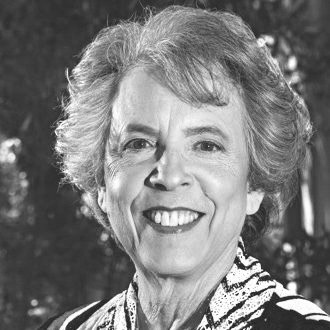I just returned from a four-day alumni retreat for rabbis and cantors who had taken part in an Institute for Jewish Spirituality program designed to deepen our own spiritual commitments. During this two-year program we studied Chasidic texts in a weekly telephone chavruta and participated in four amazing weeklong retreats that included powerful davening, intense study, yoga, meditation and a lot of silence.
Attending the alumni retreat was a gift, a blessing, a spiritual high. And because it was the week of Yitro, we focused on being at Mount Sinai. We remembered what we all learned on Mount Sinai — that Torah was given out of silence. As a midrash teaches: “When the Holy One gave the Torah, no bird chirped, no fowl fluttered, no ox lowed. … The sea did not roar, the creatures did not speak. The universe was silent and mute. And the voice came forth: ‘I am YHVH your God.’ ”
It took me three days to clear the clutter from my mind so I could really listen to the Torah that I needed to hear at this moment in my life. Silent meals helped me pay attention to gratitude; the silence of meditation opened my heart to the intensity of innovative prayer led by colleagues. I had time to write in my journal; things that were confusing became clearer. I even had a few epiphanies.
And then I came home.
I listened to my voicemail. I stopped at the market to buy food for supper. I checked my e-mail. I went back to the office to meet with a bat mitzvah student. I was stunned at how quickly the high faded and life went back to normal.
That’s what this week’s Torah portion, Mishpatim, is about. Last week we were at Mount Sinai, a spiritual trip so powerful that, according to Torah, every one of us had an out-of-body experience where we saw the thunder and heard the lightning. Last week, we each had an experience of God, hearing God speak to us out of the silence. And what did we hear? All of Torah? The Ten Commandments? Just the first two? Just the first word? Just the first letter of the first word — the silent alef? Whatever we heard, it was powerful enough to change our lives.
And yet look where we are now: Mishpatim, one of the longest portions in Torah, with more than 50 different mitzvot, including laws related to murder, kidnapping, personal injury, property damage, returning lost objects, helping the poor, alleviating the suffering of animals. After the spiritual high of Mount Sinai, all the details of daily life intervene. It seems as though Mount Sinai and Mishpatim belong to different universes.
But Jewish tradition teaches us that it is all one universe. We need the spiritual high of Sinai, and we need to remember that it exists to enable us to live in the real world. Jewish spirituality is not only about silent retreats and meditation but also — and even more important — it is about grappling in the real world of offices, kitchens, e-mail and even bedrooms, the real world of how people treat each other.
That’s why our Torah portion begins: “V’aleh h’Mishpatim” “and these are the laws which you shall set before them.”
Rashi asks: “Why does it start with ‘V’aleh, and these’?” His answer is that all these laws are linked to the Ten Commandments. They all come from God at Mount Sinai.
A Chasidic commentary goes one step further and asks: What does “before them” mean? The answer? These mundane laws of how people should treat each other, of how to organize a civil society, are so important that you set them before the laws about behavior between people and God.
That is Jewish spirituality. That is what Mount Sinai is about: creating a world where people are responsible for each other, are careful about what we say about each other, and work to create a society based on a vision of justice and empathy.
Toward the end of Mishpatim, after all the details and all the laws, God calls Moses: “Aleh Elai He-hara V’heyeh Sham,” “Come up to me to the mountain and be there … and I will give you the tablets of stone, the Torah and the commandments which I have written that you might teach them” (Exodus 24:12).
Menachem Mendel of Kotzk raised a question: If Moses went up to the mountain, of course he would be there, so why does Torah add, “And be there”?
It is there to remind us what we already learned at Mount Sinai. Whatever we do, in the sublime and in the mundane dimensions of our life, we need to be there. We need to bring our whole self into the experience. We need to be present, to pay attention, to hold on to those moments of insight and clarity and translate them into concrete daily life.
That is how we bring the heights of Sinai down to earth. That is Jewish spirituality.
Laura Geller is a senior rabbi of Temple Emanuel of Beverly Hills (tebh.org). For more information about the Institute of Jewish Spirituality, visit jewishspirituality.org.






















 More news and opinions than at a Shabbat dinner, right in your inbox.
More news and opinions than at a Shabbat dinner, right in your inbox.